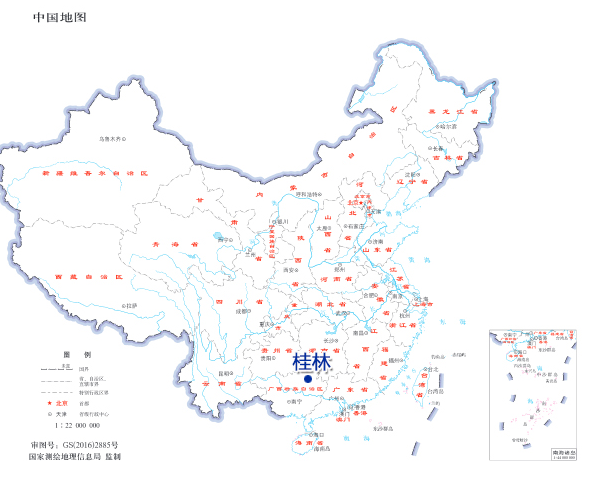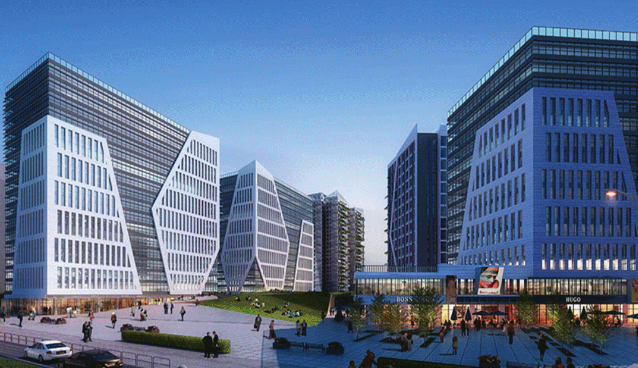Institutional information
| district: | Guangxi > Guilin city |
| categorisation: | Administrative Distr > Autonomous Regions |
| tel: | 00-86-0773-2848507 |
| website: | Click to visit the Chinese website |
| address: | No.69 Xicheng Middle Road, Lingui District, Guilin City, Guangxi Zhuang Autonomous Region, China |
| working hours: | Monday to Friday 9:00am-12:00pm and 13:00pm-17:00pm, closed on official holidays. |
| description: | Guilin is a famous international tourist city, a profound national historical and cultural city, and an ecological city of mountains and waters where it is pleasant to live and to be nourished. |
| data statistics: | 94 browse,0commentaries,0message,1Pictures,0focus |
Seller Map
详细介绍
Guilin is a famous international tourist city, a profound national historical and cultural city, and an ecological city of mountains and waters where it is pleasant to live and to be nourished. Guilin City is located in the northeast of the Guangxi Zhuang Autonomous Region, with 6 districts of Xiufeng, Juncai, Xiangshan, Qixing, Yanshan, Lingui, 10 counties (autonomous counties) of Yangshuo, Lingchuan, Quanzhou, Xing'an, Yongfu, Guanyang, Longsheng, Resources, Pingle, Gongcheng, and the city of Lipu, and has the dispatches of Guilin National Hi-tech Development Zone, Guilin Economic and Technological Development Zone, and the Guangxi Park of the Guangdong-Guizhou-Guangxi High-Speed Railway Economic Belt Co-operation Pilot Zone (Guilin). . The total area is 27,800 square kilometres, of which, the main urban area is 140 square kilometres; 13 street offices, 88 towns, 46 townships (of which there are 15 ethnic townships), 257 (community) resident committees and 1,653 villagers' committees are under the jurisdiction of the Guilin municipal districts and counties. The city has a total population of 5.4 million, of which 1.91 million are urban and 1.35 million are urban.

Guilin City is located in the southwestern part of the Nanling Mountain System, at the southern end of the Xiang-Gui Corridor, in the northeastern part of the Guangxi Zhuang Autonomous Region, with a longitude of 109°36'50″-111°29'30″ East and a latitude of 24°15'23″-26°23'30″ North, and a length of 236 kilometres from north to south and a width of 189 kilometres from east to west. The territory is 236 kilometres long from north to south and 189 kilometres wide from east to west. It borders Hunan Province in the north and north-east, Hezhou City of Guangxi Zhuang Autonomous Region in the south-east, Wuzhou City of Guangxi Zhuang Autonomous Region and Laibin City in the south, and Liuzhou City of Guangxi Zhuang Autonomous Region in the west and south-west, with a total area of 27,800 square kilometres, which accounts for 11.74 per cent of the total area of the Guangxi Zhuang Autonomous Region.

Guilin has a long history. According to the relics found in Baoguiyan and Caipiyan caves in the city, human ancestors were active in Guilin about 10,000 years ago. During the Xia, Shang and Zhou Dynasties, Guilin was the residence of the ‘Baiyue’ people. In 214 B.C., after Emperor Qin Shi Huang dug the Lingqu River, connecting the Xiang and Li waters, Guilin became a major town ‘connecting the sea in the south and reaching the Central Plains in the north’. The name ‘Guilin’ began in the Qin Dynasty, when Emperor Qin set up three counties, namely Guilin, Xiang and Nanhai, and Guilin County became famous for its abundance of jade cinnamon, which is the earliest origin of the name ‘Guilin’, but the rule of the county is not in today's Guilin City. In the sixth year of Yuan Ding of the Western Han Dynasty (111 B.C.), Shian County was established in Guilin, which was subordinate to Zuoling County of Jing Prefecture. During the Eastern Han Dynasty, it was changed to belong to Shi'an Houguo. During the Three Kingdoms period, it first belonged to Shu, and then returned to Wu. In the first year of Ganlu (265), Shian County was set up, with the county seat in present-day Guilin. During the Sui and Tang dynasties, it was part of the Gui Prefecture of Lingnan. Tang Wude four years (621 years), Li Jing repair city in Duxiu Peak south, Zhenguan eight years (634 years) renamed Lingui County, belonging to Gui Prefecture Shi'an County, Guanghua three years (900 years), belonging to the Jingjiang Festival. During the Five Dynasties and Ten Kingdoms, it belonged to the Gui Prefecture of Chu and Southern Han Dynasty successively. In the Song Dynasty, it was formerly part of Gui Prefecture in the western road of Guangnan, and then belonged to Jingjiang Prefecture. In Yuan Dynasty, it belonged to Jingjiang Road of Guangxi Province. In the Ming and Qing Dynasties, it belonged to Guilin Prefecture of Guangxi Province. Republic of China belongs to guangxi province, in 1914 renamed guilin county, in 1940 began to set up guilin city, in November 1944 to 28 July 1945, for the Japanese occupation, after the restoration of the city is still for guangxi province, the republic of guangxi history for a long time for the capital of guangxi province.
On 22 November 1949, Guilin was liberated and became a municipality of Guangxi province, and was renamed Guilin City of Guangxi Zhuang Autonomous Region in 1958, with the jurisdiction of Guilin urban area and suburb; Yangshuo County and Lingui County were transferred to the jurisdiction of Guilin City in July 1981 and October 1983 respectively, and the State Council approved the implementation of part of the zoning adjustment of Guilin on 26 December 1996, and the suburb was renamed Yanshan District, and the suburb was renamed Yanshan District on 8 September 1998; approved by the State Council, the City of Guilin is now under the jurisdiction of the State Council, and the city of Guilin has been under the jurisdiction of the State Council. On 8 September 1998, with the approval of the State Council, Guilin City and Guilin District were merged to form the new Guilin City, which has five districts, namely Xiufeng, Jiacai, Xiangshan, Qixing, and Yanshan, and twelve counties (autonomous counties), namely Yangshuo, Lingchuan, Lingui, Quanzhou, Xing'an, Yongfu, Guanyang, Longsheng, Resources, Pingle, Lipu, and Gongcheng.
On 18 January 2013, the State Council approved the abolition of Lingui County and the establishment of Lingui District in Guilin.
In July 2018, the State Council agreed and the Ministry of Civil Affairs approved the abolition of Lipu County and the establishment of Lipu City (county-level).
In 2024, Guilin City governed Xiufeng District, Juncai District, Xiangshan District, Qixing District, Yanshan District, Lingui District, Yangshuo County, Lingchuan County, Quanzhou County, Xing'an County, Yongfu County, Guanyang County, Longsheng Autonomous County, Resources County, Pingle County, Gongcheng Yao Autonomous County and Lipu City.
